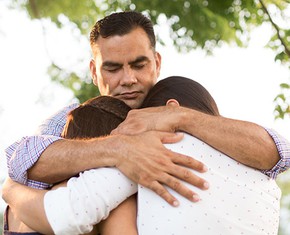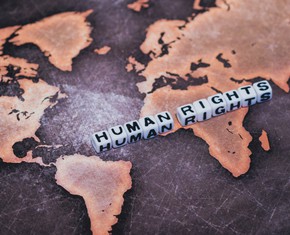The views expressed in our content reflect individual perspectives and do not represent the authoritative views of the Baha'i Faith.
What would happen if we modeled our civil voting processes on the unique way the global Baha’i community conducts their democratic and spiritual elections?
The Baha’i Faith has a remarkably different electoral process, free from partisanship, nominations, and campaigning, that functions worldwide to democratically elect its leadership institutions at every level — local, national, and international. That democratic process avoids conflicts, retains a sense of dignity and humane purpose, and elects its representatives by utilizing a completely new and different approach.
RELATED: What Makes Baha’i Elections Unique?
This unique new process is foundational to the election of “servant leaders,” people who have demonstrated their value and commitment to the community but who are not inclined to want to wield power for their own benefit. This is possible in part because there is no electioneering or campaigning for service on elected Baha’i administrative Institutions. The prohibition against campaigning is so strong that if anyone attempts to seek election, it makes them very unlikely to be voted for because Baha’i elections focus on service to others rather than personal interests.
When Abdu’l-Baha traveled to North America in 1912, a presidential election year, he only spoke about that political contest once. “The president,” he said, as recorded in Mahmud’s Diary, must be one:
… who does not insistently seek the presidency. He should be a person free from all thoughts of name and rank; rather, he should say, ‘I am unworthy and incapable of this position and cannot bear this great burden.’ Such persons deserve the presidency. If the object is to promote the public good, then the president must be a well-wisher of all and not a self-seeking person. If the object, however, is to promote personal interests, then such a position will be injurious to humanity …
So how do Baha’i voters choose the individuals they will vote for? Rather than thinking only about their own needs, they instead consider the wider needs of the community, as well as the qualities of the eligible individuals who they know. Every adult Baha’i in the local community is urged to choose individuals with “the necessary qualities of unquestioned loyalty, of selfless devotion, of a well-trained mind, of recognized ability and mature experience.”
Baha’is are further counseled that their electoral “… selection should be made with due consideration given to such other factors as age distribution, diversity, and gender. The elector should make his choice after careful thought over an extended period before the actual election.”
The results of Baha’i elections are based on a plurality of votes: the nine individuals with the most votes become the governing council, called Local Spiritual Assemblies, National Spiritual Assemblies, and, at the global level, The Universal House of Justice. Those who are elected have the responsibility to make decisions based on mutually respectful consultation — and not hold on to their own opinions or the opinions of those who elected them. Abdu’l-Baha wrote:
They must in every matter search out the truth and not insist upon their own opinion, for stubbornness and persistence in one’s views will lead ultimately to discord and wrangling and the truth will remain hidden. The honored members must with all freedom express their own thoughts, and it is in no wise permissible for one to belittle the thought of another, nay, he must with moderation set forth the truth, and should differences of opinion arise a majority of voices must prevail, and all must obey and submit to the majority.
In Baha’i elections, which are so completely opposite from typical partisan political processes, anyone elected is free to act on the dictates of their own conscience and is not beholden to those who elected them. “In this sphere,” the Universal House of Justice advised:
… the elector regards the outcome as an expression of the will of God, and those elected as being primarily responsible to that will, not to the constituency which elected them. An election thus conducted portrays an aspect of that organic unity of the inner and outer realities of human life which is necessary to the construction of a mature society in this new Age.
In most societies with democratic elections, the opinions and promises of the candidates are designed to get people to vote for them. However, once in office, campaign promises are difficult to keep because of opposing voices and a competitive rather than a collaborative process of decision-making.
RELATED: After the Elections—What Next?
Regardless of where they live, Baha’is are encouraged to take part in civil elections while scrupulously avoiding partisan politics. The Baha’i writings say that “The betterment of the world can be accomplished through pure and goodly deeds, through commendable and seemly conduct.”
Imagine what the world would look like if everyone elected leaders based on their moral characteristics and not based on their campaign promises, trusting those elected to make decisions in everyone’s best interest.
What if we looked at candidates’ records of service to the community and chose individuals whose actions embody concern for the community rather than a desire for power? How might things improve if we encouraged our elected representatives to be free to discuss and problem-solve with their legislative colleagues rather than to implacably hold to their own opinions? What if they were freed from concerns about re-election — and how their electorate would react to collaboration with those with differing viewpoints?
As is done in Baha’i elections, keeping in mind the character-based qualifications for leadership and the prerequisites for true consultation can offer insights that help all of us make principled voting choices in every election.
















Comments
Sign in or create an account
Continue with Googleor